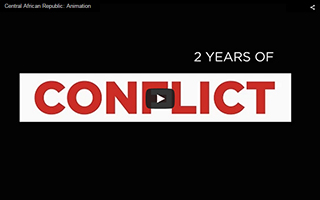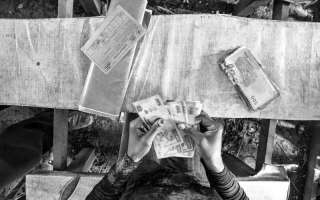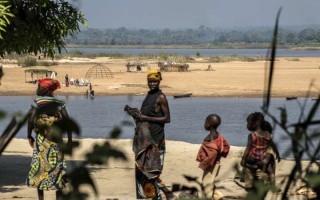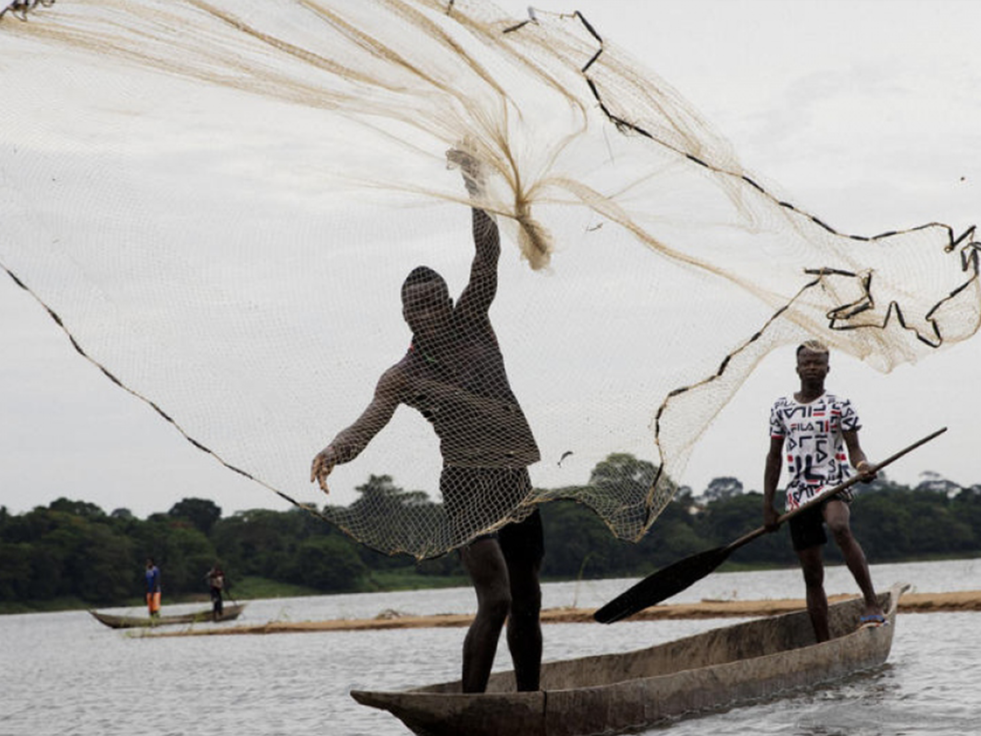
Gothier, 23, and his cousin, Prince Bonheur, 22, fish on the river separating the Central African Republic from the Democratic Republic of Congo. © UNHCR/Adrienne Surprenant
Gothier and Prince-Bonheur grew up together but conflict separated them. While Gothier was able to resume his studies, Prince remains in exile.
By Farha Bhoyroo in Mougoumba, Central African Republic
“It took us a few seconds to realize why people were screaming,” he recalled.
Prince immediately ran to his home in Mougoumba, a town in the southern Lobaye region of the Central African Republic (CAR). He grabbed his mother and younger brothers. They ran for their lives to the Ubangi River – the largest tributary of the River Congo – which flows along the borders of CAR, the Republic of the Congo, and the Democratic Republic of the Congo (DRC).
Around the same time, Prince’s cousin and best friend Gothier Semi, now 23, was at home, packing his bag for school, when he too heard the screams. “I didn’t know where my family was but I could see the fear in the eyes of people running to the water. I knew I had to run, too,” he said.
Fate divided them
Gothier jumped into the nearest boat he could find. Alone and scared, he floated down the river for hours. When he eventually stopped, he found himself in Betou, Republic of the Congo.
Meanwhile, in a small canoe Prince and his immediate family crossed directly over the river’s choppy waters to the far bank. They soon reached DRC and made their to way Boyabu refugee camp where UNHCR, the UN Refugee Agency, provided them with food and shelter.
For the first time in their lives, Gothier and Prince were far away from each other, in different refugee camps and in different countries.
Both also faced a new reality. Like most children their age who flee conflict, a lack of secondary schools, teachers and education materials in the camp meant neither of them would be able to continue their studies and fulfill their ambitions.
Fate intervened again. In 2016, a fragile peace had begun to return to parts of CAR after sectarian conflict had sent 600,000 people fleeing to neighbouring countries, with another 600,000 still internally displaced.
Gothier was desperate to go home and return to school, and last year his hopes became reality. To date, UNHCR has assisted the government with the voluntary return of nearly 4,500 Central Africans in the Congo to the Lobaye region – Gothier among them. He went back to Mougoumba, enrolled in secondary school and is now doing his best to catch up on everything he missed.
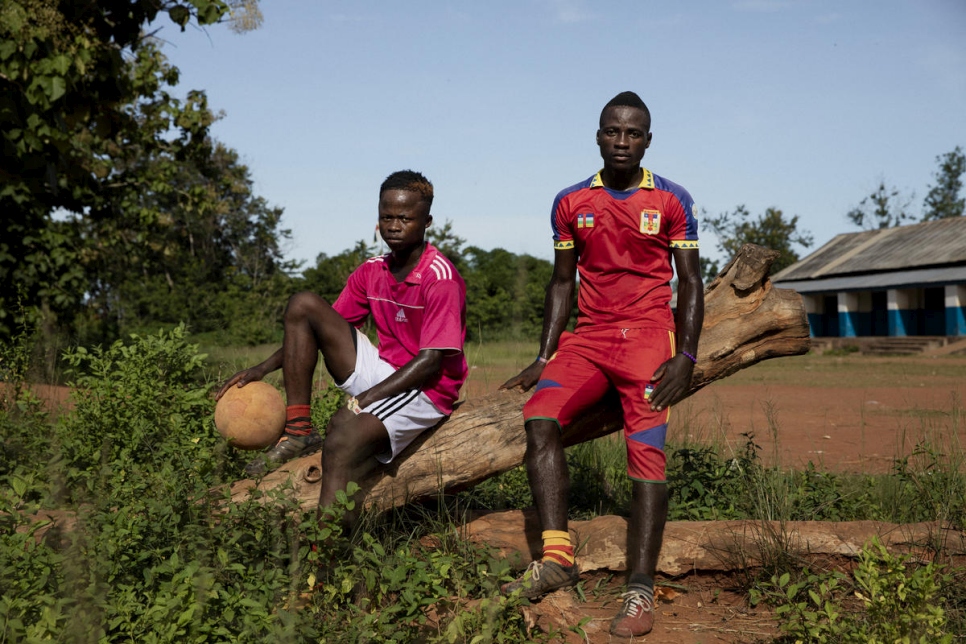
Bonheur (left), 22, and his 23-year-old cousin Gothier pose for a portrait in front of the school in Moungoumba, Central African Republic (CAR). © UNHCR/Adrienne Surprenant
“Losing five years of schooling has taken me so many steps back,” he said. “But that’s the only way I can restart my life. Education is the key.”
For Prince, however, the story did not go so well. “Ever since I left [home] five years ago, I haven’t been to school. I stay idle, without studying,” he explained.
Prince is still a refugee. Occasionally he dares to make the perilous journey back across the river to Mougoumba, where to make some money he sometimes sells phone credits or works at his uncle’s sparsely stocked pharmacy. But as a refugee, his visits are unofficial and he lacks the official papers needed to return permanently – and enrol back in class alongside Gothier.
“Sometimes I go to my old school,” said Prince. “I even sit outside the class and listen to the teacher while waiting for my cousin to finish. It makes me sad.”
“Life without school is no life at all.”
David Yakpounga, 55, the principal of the school, said he would like Prince and others in similar situations to re-enrol, whether or not they have the right documents. “I encourage them to come to class, but they only stay in Mougoumba for one or two days,” he said. “You cannot learn anything like that.”
Prince vowed he will not give up. “I know I need an education. School is my future. Life without school is no life at all.”
Mr Yakpounga agreed. As more Central Africans return from exile, the country will need money to build and expand schools, train more teachers and supply additional learning materials.
“A country where the children don’t study is a dead country,” the principal stated. “Without education, there can be no peace.”
This story is featured in UNHCR’s 2019 education report Stepping Up: Refugee Education in Crisis. The report shows that as refugee children grow older, the barriers preventing them from accessing education become harder to overcome: only 63 per cent of refugee children go to primary school, compared to 91 per cent globally. Around the world, 84 per cent of adolescents get a secondary education, while only 24 per cent of refugees get the opportunity. Of the 7.1 million refugee children of school age, 3.7 million – more than half – do not go to school.
Originally published by UNHCR on 11 September 2019



